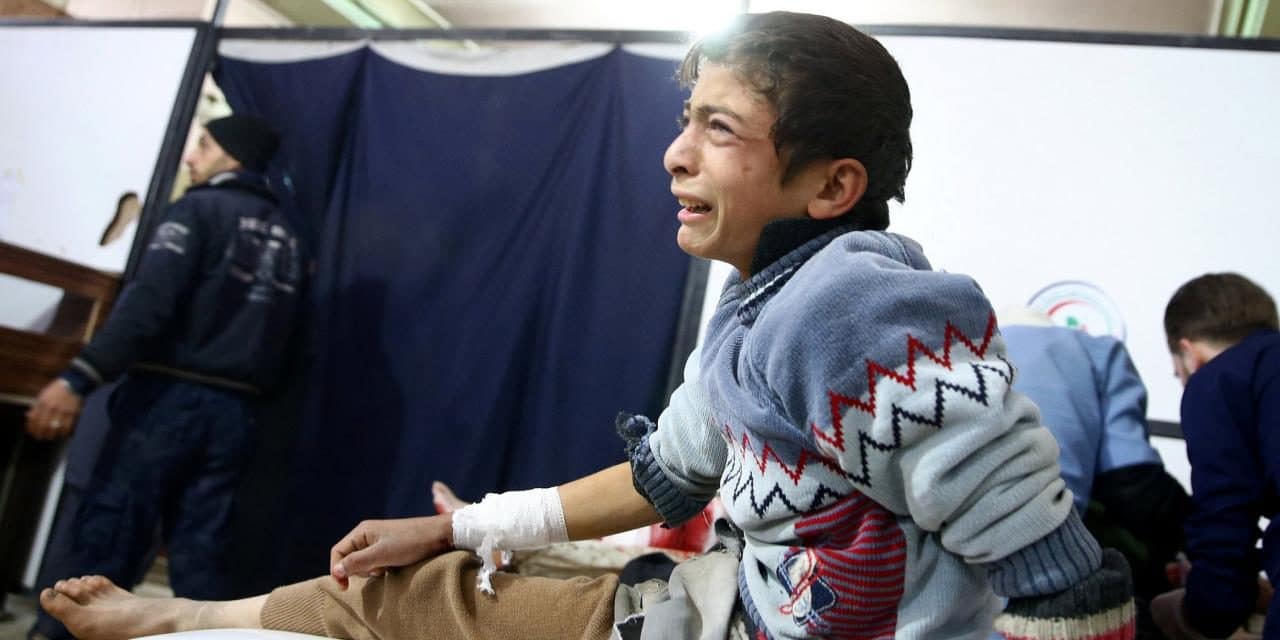A wounded boy after a pro-Assad airstrike on the town of Misraba in northwest Syria, November 26, 2017 (Bassam Khabieh/Reuters)
In Syria’s 10-year conflict, 6% of Syrian youth have had one or both parents killed. About 10% have seen a parent seriously wounded. One in eight have been injured themselves, and 6% have been taken hostage.
The findings are in a report by the International Committee of the Red Cross, based on interviews between December 23 and January 20 with 1,400 Syrians aged 18 to 25 in Syria, Lebanon, and Germany. Among the other findings:
*42% have a relative or close friend who has been killed
*62% have been forced to flee their homes
*55% have had to interrupt education
*6% have suffered sexual violence or know someone who is a victim
*49% have lost their means of income
*53% have no or little health care
*77% have no or very limited access to utilities such as water and electricity
The youth speak of lost contact or inability to see loved ones. They reflect on the education and security taken from them: “The only beautiful memory that I can remember before the last ten years was going to school. We used to go in the morning, feeling safe, without being afraid of anything.”
Ahmad, now in Lebanon, explains, The last book I read was a ninth-grade science book. My teachers used to tell me
I was good at maths. I was planning to join university and become a maths teacher. It used to be my dream.”
In the past year, 73% of the survey’s respondents say they have experienced anxiety, and 58% have been depressed. Among the other feelings are frustration (62%) and distress (69%). More than half (54%) suffer sleep disorders.
Rami Afsar, an artist still in Aleppo Province in Syria, says:
I don’t have any physical injuries. For me the psychological and emotional damage was the hardest part. I’ve tried to get over it but it left me with scars. This wound will live with me for a lifetime….
I wish the world could see the reality in Syria – not just what’s on social media. Now all you see is war, destruction and people in need.
But what we really need is spirit. I wish the world could see our history, our art and our new generations, because we have something big and genuine, and that’s the most important thing.
That sentiment is shared by many youth, with 51% perceiving that their experiences in Syria have not been understood by the public.
Yet despite the death, destruction, and upheaval, the young Syrians hold on to hope. More than 70% said they are “somewhat or very optimistic” about the future. Almost two-thirds (65%) hope for stability, 39% look for happiness in general, and 33% say they want to raise a family.

